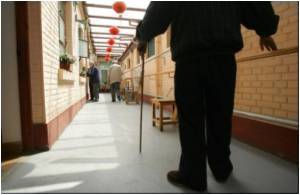A surface molecule on bacteria that directs bone cells to die has been identified by scientists who claim that this discovery could assist in developing new treatments for severe bone disease.

Bone disease, or osteomyelitis is usually caused by the bacterium MRSA that lives commonly on human skin and in the nose. It can reach the bones through open wounds or during surgery and most often causes infections in people with compromised immune systems.
Dr. Steve Kerrigan from the Royal College of Surgeons in Ireland in collaboration with Trinity College Dublin conducted the study.
"Bacteria that do not have the Spa protein on their surface are unable to bind to bone cells, which prevents them from sending suicide messages," she said.
"Blocking bacterial attachment to cells via Spa could therefore be a way of treating osteomyelitis, or even preventing it in the first place," Kerrigan added.
Current treatment involves prolonged aggressive antibiotic therapy, which is often less than successful and requires surgical debridement.
The study was presented at the Society for General Microbiology's autumn meeting.
 MEDINDIA
MEDINDIA




 Email
Email








